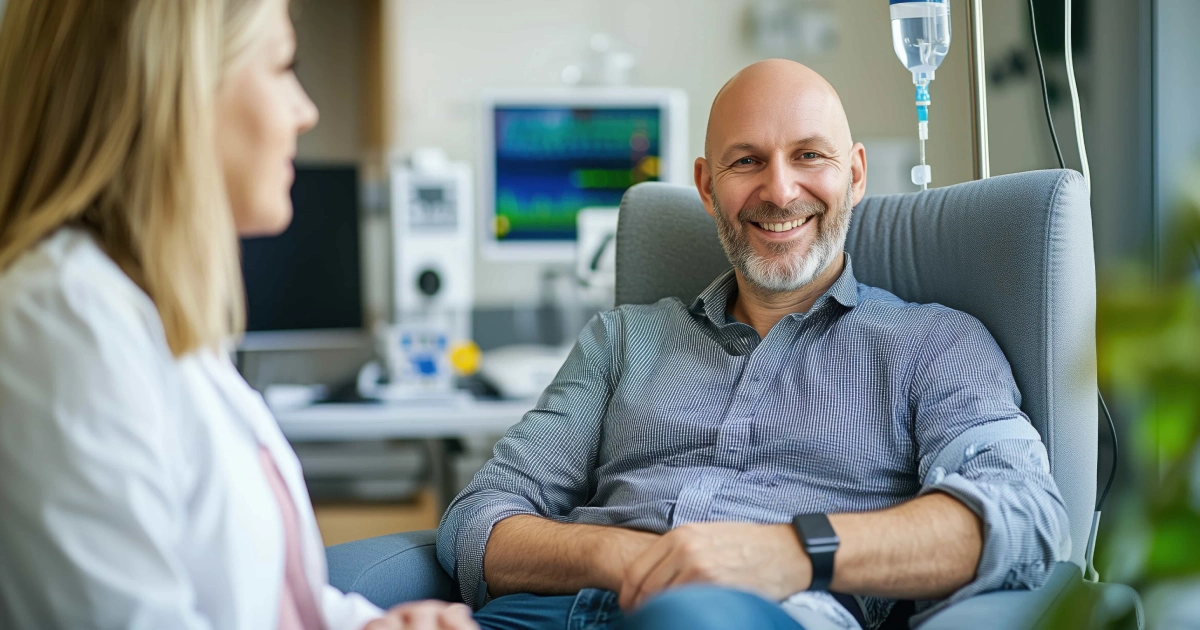Starting chemotherapy can feel overwhelming, both emotionally and physically, especially if it’s your first session. From understanding your treatment plan to arranging reliable Chemo patient transport, taking a few steps beforehand can ease anxiety and make the process more manageable.
This guide walks you through everything you need to know about preparing for chemo, including what to expect, how to organize your schedule, and the role of supportive services like Cross Care Transport in ensuring safe and comfortable travel to and from your treatments.
Understanding Chemotherapy
Chemotherapy is a treatment that uses powerful drugs to target and destroy cancer cells. It’s used for various types of cancers and is often part of a broader treatment plan. Your oncologist will determine the most effective approach based on your diagnosis and health status.
Types of Chemotherapy Treatments
There are several types of chemotherapy, and the method chosen depends on your specific needs:
- Intravenous (IV) Chemotherapy is the most common method of administering chemotherapy. It is delivered directly into the bloodstream.
- Oral Chemotherapy: Pills or capsules that you can take at home.
- Injected Chemotherapy: Delivered via an injection into a muscle or under the skin.
- Topical Chemotherapy: Applied to the skin, used for specific types of skin cancer.
- Regional Chemotherapy: Targets cancer cells in a specific area of the body.
Knowing which type of chemotherapy you will receive is an important step in preparing for chemo, as it helps you anticipate what to expect.
Preparing for Your First Session
Step 1: Gather Information
Before starting treatment, gather as much information as possible. Ask your oncologist questions such as:
- What type of chemotherapy will I receive?
- How long will each session take?
- What are the expected side effects?
Step 2: Arrange Your Schedule
Chemotherapy sessions can vary in length. Some may take only a few hours, while others last a day. Plan your day accordingly:
- Arrange transportation to and from the clinic.
- Take time off work, if necessary.
- Inform friends and family about your schedule.
Step 3: Prepare Your Body
Eating a balanced diet, staying hydrated, and getting adequate rest are imporant before treatment. Some additional tips include:
- Nutrition: Focus on lean proteins, fruits, and vegetables to boost strength and immunity.
- Hydration: Drink plenty of water before and after your session to help flush out the medication.
- Rest: Ensure you’re well-rested, as fatigue is a common side effect of chemotherapy.
Chemotherapy for Common Cancers
Chemotherapy for Breast Cancer
For breast cancer patients, chemotherapy may be used before surgery to shrink tumors or right after surgery to destroy remaining cancer cells. Your treatment plan may involve:
- Combination drug therapy to increase effectiveness.
- Regular monitoring to track your progress and adjust medications as needed.
Chemotherapy for Lung Cancer
Chemotherapy plays a significant role in treating lung cancer, especially for non-small cell lung cancer (NSCLC) and small cell lung cancer (SCLC). It may be used:
- In conjunction with radiation therapy.
- As a standalone treatment for advanced stages.
Chemotherapy for Colon Cancer
Chemotherapy is often recommended for colon cancer patients to:
- Reduce the risk of recurrence after surgery.
- Treat advanced cases where cancer has spread to other organs.
Discussing your specific cancer type and treatment goals with your oncologist will provide a clear roadmap for the future.
Practical Tips for a Smooth Chemo Session
Bring Comfort Items
Chemotherapy rooms are designed for patient comfort, but bringing personal items can make the experience more pleasant. Consider packing:
- A cozy blanket.
- Snacks and water.
- Entertainment, such as books, headphones, or a tablet.
Dress Comfortably
Wear loose, comfortable clothing that allows access to IV lines or injections. Layering can help you adjust to varying room temperatures.
Have a Support System
Having a trusted friend or family member accompany you during your session can provide emotional support and help with practical tasks like driving or taking notes.
Managing Side Effects
Know What to Expect
Side effects vary depending on the type of chemotherapy and individual response. Common side effects include:
- Nausea and vomiting.
- Fatigue.
- Hair loss.
- Changes in appetite.
Proactive Measures
- Take prescribed medications to manage nausea.
- Plan for rest days following treatment.
- Communicate openly with your healthcare team about any side effects.
After Your First Session
Monitor Your Body
Pay close attention to how you feel after your first session. Keep a journal to track:
- Symptoms or side effects.
- Questions or concerns for your next appointment.
Stay Connected
Stay in regular contact with your healthcare team. Don’t hesitate to reach out if you experience severe side effects or have questions about your treatment.
Build a Routine
Over time, it is helpful to establish a routine around your chemotherapy schedule. This might include:
- Regular meal planning to address changing appetite.
- Scheduling light exercise to combat fatigue.
- Maintaining a sleep schedule to improve energy levels.
Emotional and Mental Preparation
Seek Support
Chemotherapy can take a toll on your mental health. Many patients find comfort in connecting with others who are undergoing similar experiences. Consider:
- Joining a cancer support group.
- Speaking with a counselor or therapist specializing in oncology.
- Reaching out to friends and family for emotional support.
Practice Stress-Relief Techniques
Relaxation exercises can help manage stress and anxiety during treatment. Some effective techniques include:
- Deep breathing exercises.
- Meditation or mindfulness practices.
- Gentle yoga or stretching.
Focus on Positivity
While the journey may be challenging, a positive outlook can make a significant difference. Celebrate small victories and remind yourself of the reasons you’re undergoing treatment.
Cross Care Transport: Chemotherapy Treatment Transportation
Reliable chemo patient transport is a critical part of preparing for chemo. Regular transportation ensures patients never miss a session and reduces stress on treatment days.
Cross Care Transport offers flexible solutions designed to adapt to your changing needs throughout your chemotherapy journey. Whether you’re feeling strong enough for our medical taxi service or require wheelchair assistance when fatigue sets in, we’re here to help. Our trained staff ensures you arrive safely, on time, and return home with extra care during times of nausea, exhaustion, or discomfort.
By taking the worry out of logistics, our service allows you to focus fully on healing.
Schedule your chemotherapy transportation with Cross Care Transport today.
Frequently Asked Questions
What should I bring with me when preparing for chemo sessions?
When preparing for chemo sessions, bring comfort items like a blanket, snacks, water, and entertainment to help you feel more at ease.
How can chemo patient transport services help if I feel too tired to drive myself?
Chemo patient transport services ensure you have a safe, reliable ride to and from treatment when fatigue or side effects make driving difficult.
Is it safe to use public transportation after chemotherapy?
Public transportation after chemotherapy is generally not recommended due to fatigue, weakened immunity, and potential exposure to germs.
Can family members ride along with me during chemo patient transport services?
Yes, family members can often ride along with you during chemo patient transport services for additional support and comfort.
How far in advance should I schedule transportation for chemotherapy sessions?
It’s best to schedule your transportation at least 24–48 hours in advance to guarantee availability for your chemotherapy appointments.






